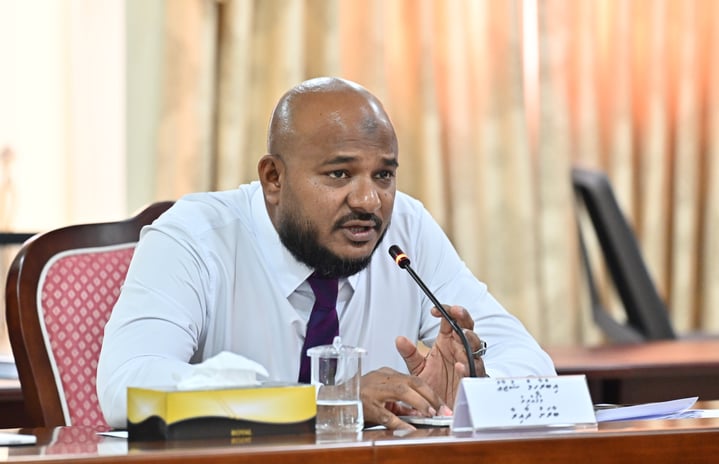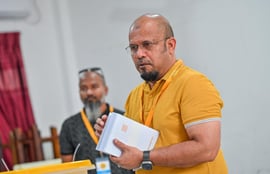Baarah MP Ibrahim Shujau has alleged that the opposition Maldivian Democratic Party (MDP) undermined the decentralization system it claims to have created.
Speaking in Parliament today during debate on proposed amendments to the Decentralization Act, Shujau said MDP had failed to promote decentralization in practice and had, instead, actively weakened the system during its time in government.
The bill under discussion, submitted on behalf of the government by South Fuvahmulah MP Ibrahim Hussain, includes provisions that could limit the financial powers of local councils.
Shujau, a former Male' City councilor, alleged that the MDP administration withheld approval for councils to establish local authority companies especially in cases where councils were dominated by the opposition Progressive Party of Maldives (PPM).
He cited the example of Male' City Council, where a PPM majority was denied permission by the Economic Ministry to set up a company that would have financially empowered the council.
“During the MDP government, land use plans of the islands were withheld after PPM won the 2021 local council elections,” he said.
“There were times when land in Malé was taken over by the government within 24 hours. Do you see that happening today? Since President Dr Mohamed Muizzu came to power, that has stopped.”
He further claimed that assets such as Male’s Usfasgandu and the industrial village were abruptly taken over by the MDP-led central government.
“I am saying that MDP has taken away the power of this system, while continuing to claim that they created it,” he said.
Defending the government's proposed amendments, Shujau argued that the changes would, in fact, empower councils, rather than strip them of their authority.
“The bill outlines that councils should conduct business through local government companies. But they should not undertake the same work that private citizens do on the islands. The ventures should not exceed MVR 10 million in value and must not be directly tied to the island’s infrastructure development,” he said.
He that the bill would not weaken decentralization, adding that the opposition was attempting to misrepresent the intent of the reforms.
Key points of the bill
One of the major changes would restrict what councils can do during their final year in office. If a council has less than one year left in its term, it would need to follow special rules set by the Ministry of Finance and the Local Government Authority (LGA) before making certain decisions. These include:
1. Hiring new permanent or contract employees
2. Leasing or granting land, lagoons, or reefs under the council's control
These actions would still be allowed, but only if they follow government-approved procedures.
Another significant part of the bill deals with local authority companies. While these companies will still be allowed to conduct economic activities, three new conditions would apply:
- The activity must not compete with private businesses on the island
- It must not be essential for the island’s infrastructure or development
- The investment or capital involved must not exceed MVR 10 million
Additional changes include:
- Councils’ bank accounts will have to be managed under guidelines set by the Finance Ministry.
- If Finance Ministry requests a council's bank statements, the council has to provide the information.
- The government will not be allowed to charge rent for land, lagoon, or reefs leased to provide basic public services.




